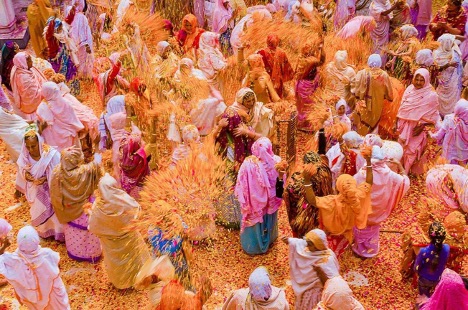With hope in her eyes …. A Widow from India
A Widow from India

“There must be a mistake,” I said, but the voice on the other end was definitive in telling me, “No, unfortunately, we lost him.” There I was, standing and wondering what exactly went wrong that I had to land up in this situation at such a young age. Being from a Hindu traditional family and the clan of priests (Brahmins as they call it), every day till the 12th day there were different rituals that were carried out to rest the departed soul in peace!!!
It was only after all the people left, after a few days, that the full impact of what had happened hit me hard. Here I was, standing with my 4-year old twin boys, absolutely clueless about what the future would hold for me. Not to mention the barrage of questions from my boys – “Where is Bappai?” (Dad, as they fondly called him) “When is he going to come back?”
There were all kinds of reactions from people around me – love, support, help, sympathy, but also raised eyebrows and questions. Many even stated that I was unlucky and the reason for my husband’s death. “She was too career-oriented and busy in her job to give time to her husband’s health,” …and the list went on and on. So did the days, with a mix of my emotions – fear, frustration, anxiety, and loneliness.
Today, it has been two years, five months, and three days. I wonder if the life of a widow is actually similar all over the globe? Well, I really need to find out about it, but what I know of it is it’s not a very easy life.
Statistics from India
India is the country with the largest widow population in the world. It is estimated there are 40 million widows in India today – 10% of the country’s female population. It has become home to the “husbandless.”
In rural India and some communities, on news of their husband’s death, the wives break their bangles as they can no longer wear jewellery or use sindhoor – the red powder women wear in their parting and on their foreheads to denote their married status. Many widows are thrown out of family homes by their children or abandoned by their in-laws. Unfortunately, without a man by her side, a woman has no respect in rural Indian society. It is part of a patriarchal culture where a woman is respected only if she is a mother, daughter and wife.
However affluent the community or the family – widows are uninvited to auspicious functions. She can participate in these rituals only if she has a husband by her side.
The widows are the unacceptable face of India. Many leading agencies, including Central and Local Governments, have failed them, Politicians, with rare exceptions, have ignored them, and wider society continues to exploit them.
To become a widow is to experience profound personal tragedy. Tragically, for many of India’s widows, the pain of such a loss and the grief that ensues lays the foundation for continued hardship – for a life marked by stigmatization, dehumanization, loneliness, and despair.
Women can be denigrated as an “it” upon the loss of their spouse; they may be ostracized in their communities, endure restrictions about their physical appearance, sex lives and even diets, be confined to their homes or expelled from them entirely.
The stigma surrounding widows endures today and ought to be addressed. It is undoubtedly good that some governments, NGOs (Non-Governmental Organizations), and other entities are working to support widows – but there is a broad societal need, one that is no less than a moral and social imperative, to end the stigma surrounding widowhood. Taking an axe to social mores that denigrate widows and affording them the respect and humanity they deserve will not be an easy task. However, for society’s sake, it must not be viewed as a task beset by insurmountable odds.
Such programmes for empowerment are a necessity at the global, regional and national levels. We do have foundations and organizations, like the Loomba Foundation, Kamala Foundation, and Modern Widows Club, who know the importance of ensuring widows do not experience tragedy upon tragedy – not only the pain of loss but of social exclusion. They know that it is important that widow rights be protected and that their plights not occur in silence. Addressing this will not be easy – but it must be done.
In the darkness, hope as it often is may be found.
Times are changing for the good, with many widows themselves coming forward to join hands for this good cause. Eventually, people might no longer look at us as a curse.
With hope in my eyes,
A Widow from India

